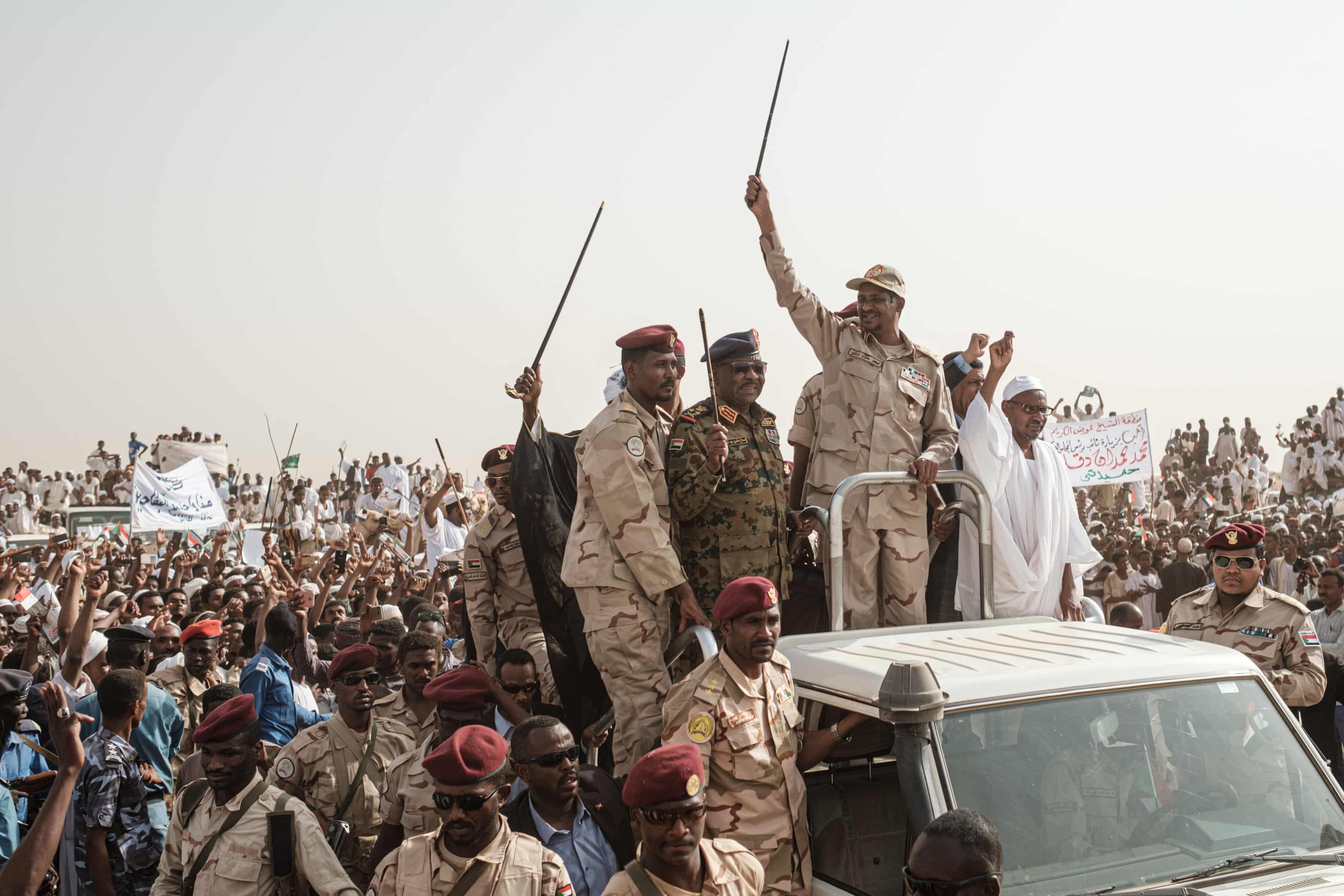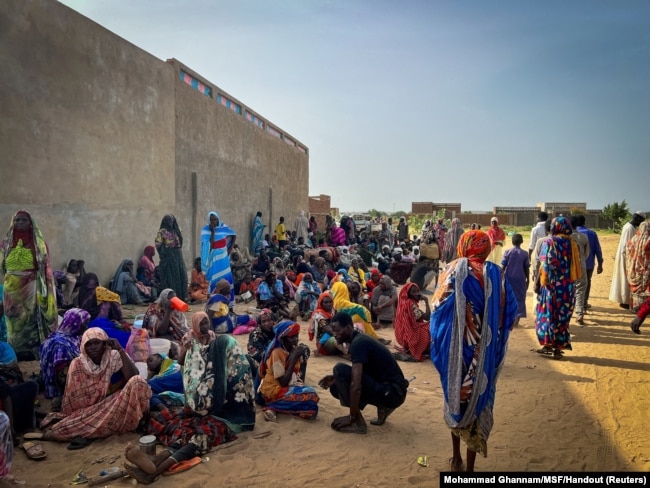The Situation in Sudan
"[Sudan is in the grips of a] catastrophic situation, [on the brink of a man-made famine.]""There are reports of mass graves, gang rapes, attacks in densely populated areas and many more horrors.""We are failing the people of Sudan."Edem Wosornu, UN relief advocate"We haven't done anything -- just expressing concern, which doesn't solve any problems.""There's not enough pushing from the international community, including Canada, to stop this war."Imad Satti, director, Sudanese Canadian Communities Association"We are looking to welcome Sudanese people fleeing war at the end of this year or the beginning of next year.""It's very important to talk about what has become a forgotten war for a lot of us."Canadian Immigration Minister Marc Miller"Fighting broke out in Khartoum, Sudan’s capital, on 15 April 2023 as an escalating power struggle between the two main factions of the military regime finally turned deadly.""On one side are the Sudanese armed forces who remain broadly loyal to Gen Abdel Fattah al-Burhan, the country’s de facto ruler. Against him are the paramilitaries of the Rapid Support Forces (RSF formerly known as Janjaweed), a collection of militia who follow the former warlord Gen Mohamed Hamdan Dagalo, known as Hemedti.'"The RSF was founded by the former dictatorial ruler Omar al-Bashir as an Arab counterinsurgency militia. Bashir wanted to crush a rebellion in the region of Darfur that began more than 20 years ago due to the political and economic marginalization of the local population."Background
 |
| Gen Mohamed Hamdan Dagalo, known as Hemedti, at a rally in Abraq village, outside of Khartoum, 22 June 2019. Photograph: Yasuyoshi Chiba/AFP/Getty Images |
Desperate
Sudanese trying to escape Sudan with its raging conflict re-ignited by a
reconstituted Islamist group known for the horrors they inflicted on
Black Darfurian farmers seek haven elsewhere than in a country that has
distinguished itself for its lethal confrontation between traditional
herders and pastoralists, forcing farmers off their land through
uninhibited human rights violations of mass murder, rape, and situations
where the then-government sent helicopter gunships to mow down people
fleeing for their lives.
An
estimated 8.5 million people have been forced out of their indigenous
lands -- described by the United Nations as the largest internal
displacement crisis in the world. Sudanese who had previously immigrated
to, or been absorbed as refugees in Canada, escaping political and
social oppression, call upon Canada to exert its immigration bureaucracy
to enable threatened Sudanese to be reunited with their families in
Canada.
The
Liberal government of Justin Trudeau is skilled in expressing support
for the war-torn unfortunates of the world by 'expressing concern' as it
did last spring, in addressing the security situation in Sudan,
airlifting its Canadian citizens to safety. However, the Canadian
government has refrained from sanctioning the warlords, much less
expressly naming and blaming countries that have been involved in
fueling the war.
A
family reunification program had been announced late in 2023, one
designed to permit those fleeing Sudan to join their relatives in Canada
with the proviso they have the means to provide financial support.
According to the families involved, the program's demands for paperwork
make the process impossible in an active war zone. Potential sponsors
have been advised they must have $18,100 in cash, along with a minimum
annual income of $51,128 to proceed with sponsorship of a family of
four.
According
to Mr. Satti, speaking through his organization as representing
Sudanese groups across Canada, there are those with the required cash,
set back by futile efforts aiding relatives in Sudan with the required
paperwork, while others send money to help their relatives in a
desperate situation, an effort that serves to deplete savings, while
accomplishing little to actually enable their relatives to travel
outside Sudan, much less look to the onerous requirements before
immigration is countenanced.
Applications
were being accepted from February 27, to the point where 680
applications had been received by a month later, representing the hopes
of some 1,500 people who qualified for processing. To this point,
however, no applications have yet been approved by Immigration, Refugees
and Citizenship Canada. The program was scheduled to accept as many as
3,250 applications, yet the minister of Immigration, Marc Miller has no
expectation that anyone will arrive any time soon in Canada.
Former
Ottawa ambassador to Sudan, Nicholas Coghlan, has spoken out for months
urging Canada to follow the United States and Europe in sanctioning
economic networks which warlords in Sudan are reliant upon. He also
criticized Canada for lagging on appointing a senior diplomat for the
region, to among other issues, gather intelligence to guide Ottawa on
how best it could project humanitarian and diplomatic moves to aid the
situation in Sudan.
 |
| Sudanese refugees gather as Doctors Without Borders teams assist the war-wounded from West Darfur, Sudan, in Adre hospital. (Mohammad Ghannam/MSF/Handout via Reuters) |
Labels: Canada, Conflict in Sudan, Internal Displacement, Mass Murder, Rape, Refugee Intake, Sanctions

<< Home